The authorities are still pushing an energy policy that ignores local interests and the environment, even after February protests temporarily halted a coal-fired power station in Krabi.
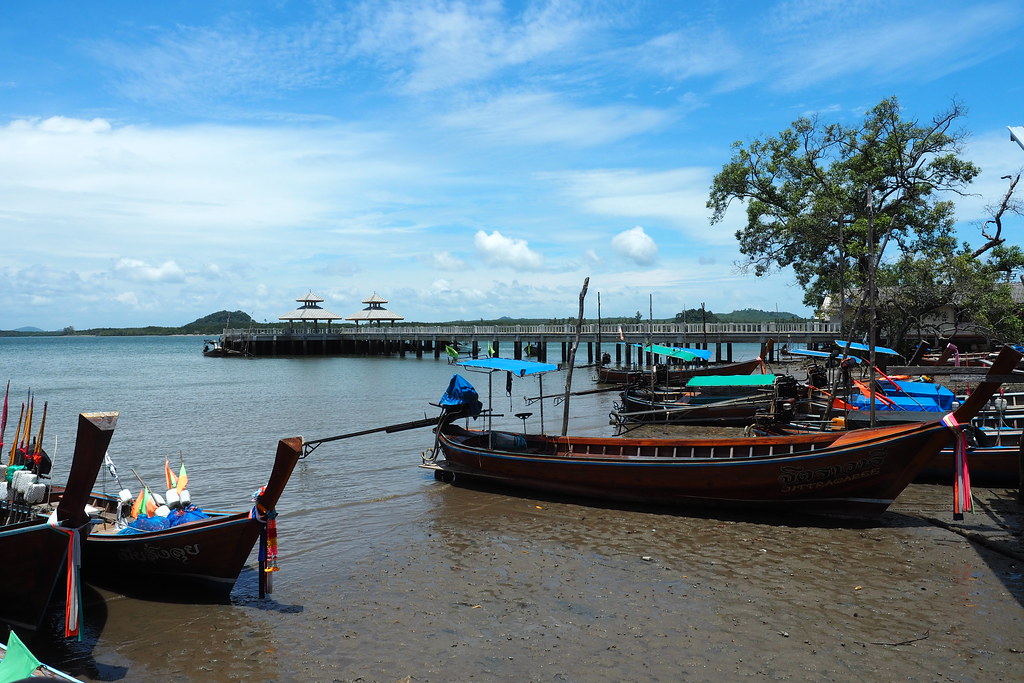
A small fishing village situated close to the area proposed for the construction of Krabi's coal-fired power plant
“The government has the duty to provide to find energy for the country, they went back and I’m already satisfied. The EIA (Environment Impact Assessment) and EHIA (Environmental Health Impact Assessment) will be done again in at least one year. If they pass, the coal-fired power plant will be in operation between 2022 and 2023,” said Gen Prayut Chan-o-cha, the junta leader and Prime Minister, on 21 February 2017 shortly after promising anti-coal power plant protesters that the project would be temporarily halted.
After the protest, a tripartite committee was established with representatives of local communities to discuss how the EIA and EHIA process could be improved. With energy demand in Southern Thailand rising by about 5 per cent a year, the Electricity Generating Authority of Thailand (EGAT) and the government are still pushing the construction of the controversial 800MW power plant, arguing that the country has little choice but to stick to the Power Development Plan 2015-2036 (PDP 2015-2036) to facilitate investment in the region.
Voices of local communities
“It was hilarious. We were informed about the project about three years ago when they organised a public hearing about it in the village. The villagers knew nothing about it before that and we began to oppose it then,” said Surasak Wealadee, 39, a villager of Khlong Rua Village, Taling Chan Subdistrict, Nuea Khlong District of Krabi.
Under the EGAT plan, a pier will be constructed close to the village for ships bringing coal to feed the power plant, which is situated about five kilometres from the pier. The villagers in 2014 filed a petition at the Central Administrative Court against the pier, arguing that the area is a part of the Krabi River estuary, which was listed as a protected zone in 2001. It is also protected under the Ramsar Convention, an international treaty for the conservation of wetlands. However, there has been little progress since they lodged the complaint.
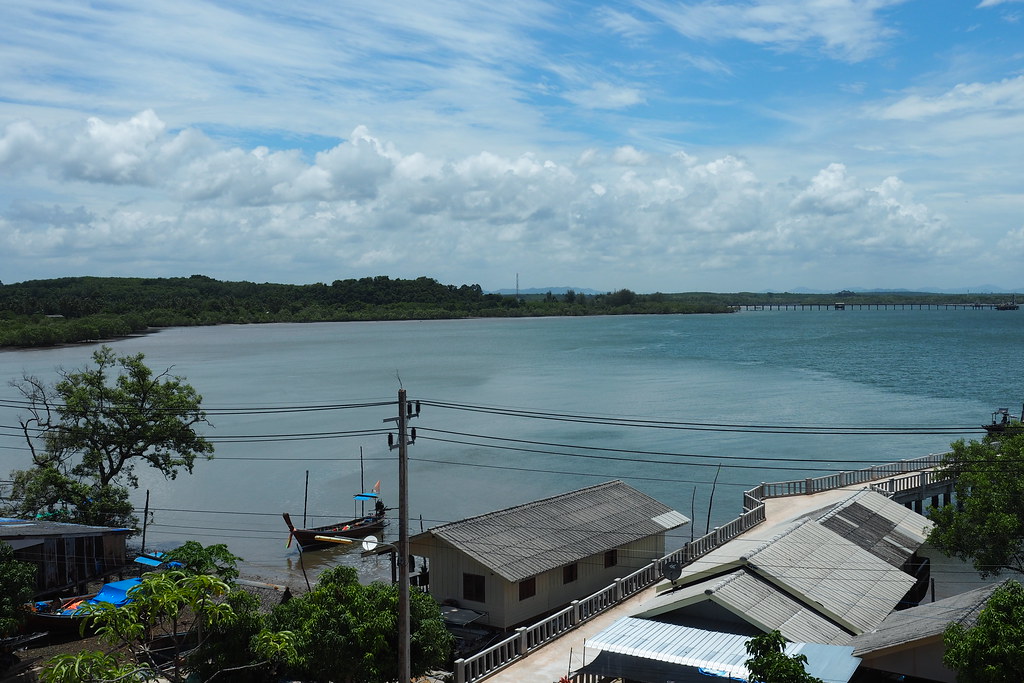
Khlong Rua Village
Abdulla Matosot, 57, a fisherman in the village, said about 70 per cent of the villagers are small scale fishers and they are gravely concerned about the construction of the pier. “It will surely affect our livelihood, since it will be within walking distance of the village.”
He added that the EIA conducted in March 2014 stated that the weight of the ships transporting coal would be less than 3,000 tonnes. However, EGAT later changed it to 10,000 tonnes. “With the ships that size the seabed of the passage leading to the pier is surely too shallow and the authorities will have to dredge it, which will have detrimental effects on the marine environment”
Not far from Khlong Rua Village is the old gas power plant of Krabi. The 340 MW plant has been operating since 1961 in Khlong Khanan Subdistrict. Since its first day of operation villagers have complained about pollution from the plant.
“The power plant released contaminated water into the local canal. In the decades since plant has been in operation, many people have developed lung cancer,” Sawai Jaikliang, 68, former head of Thung Sakhon Village in the Subdistrict, told Prachatai.
“The local communities will not benefit from the project for sure. Most of us oppose it of course, but since we are dealing with the military government who could use Section 44 [of the Interim Constitution] to go ahead with the project, we don’t know what the outcome would be.”
Villagers from both areas said that in any case they would not trade their livelihood for energy security in the region. They, however, agreed that if the authorities want to construct power plants based on clean renewable energy instead of fossil fuels, they will not oppose the project.
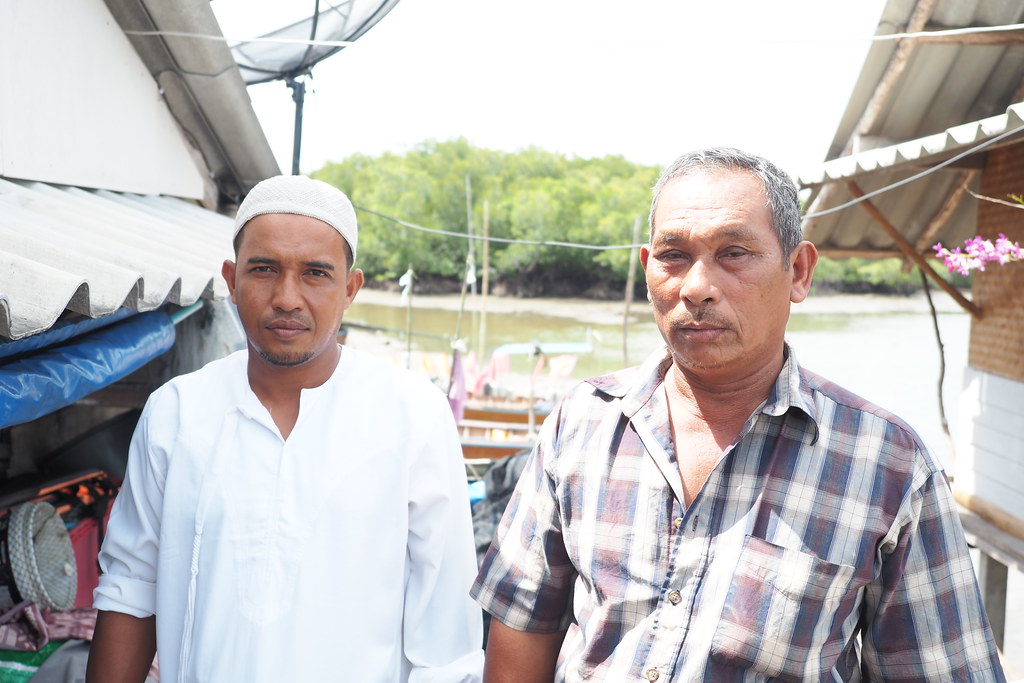
Surasak Wealadee (left) Abdulla Matosot (right)
Meeting energy needs with local capacity
According to Energy Minister Gen Anantaporn Kanjanarat, the National Council for Peace and Order (NCPO) is willing to listen to suggestions about how the region could meet its energy needs. However, the plan must conform to PDP 2015-36.
The Minister said that the another option is to buy energy from Malaysia. However, PDP 2015-36 requires that energy purchases cannot exceed 10-15 per cent in 2026 and 15-20 per cent in 2036.
EGAT, however, announced that importing energy from neighbouring countries is the last resort. EGAT spokesperson Saharath Boonpotipukdee told the media that long-term power purchasing contracts with Malaysia are difficult due to that country’s regulations, unlike Lao PDR where Thailand has been buying energy.
As the region is blessed with sunlight and is the region with largest palm oil plantations, many of Krabi’s inhabitants said that the government should instead opt for alternative renewable energy instead.
According to Athiras Dundee, 52, a palm oil industry expert in the province, Krabi has about 1 million rai (1600 sq km) of palm oil plantations which are increasing at a rate of five per cent every year. Therefore, the province could rely on biomass for energy.
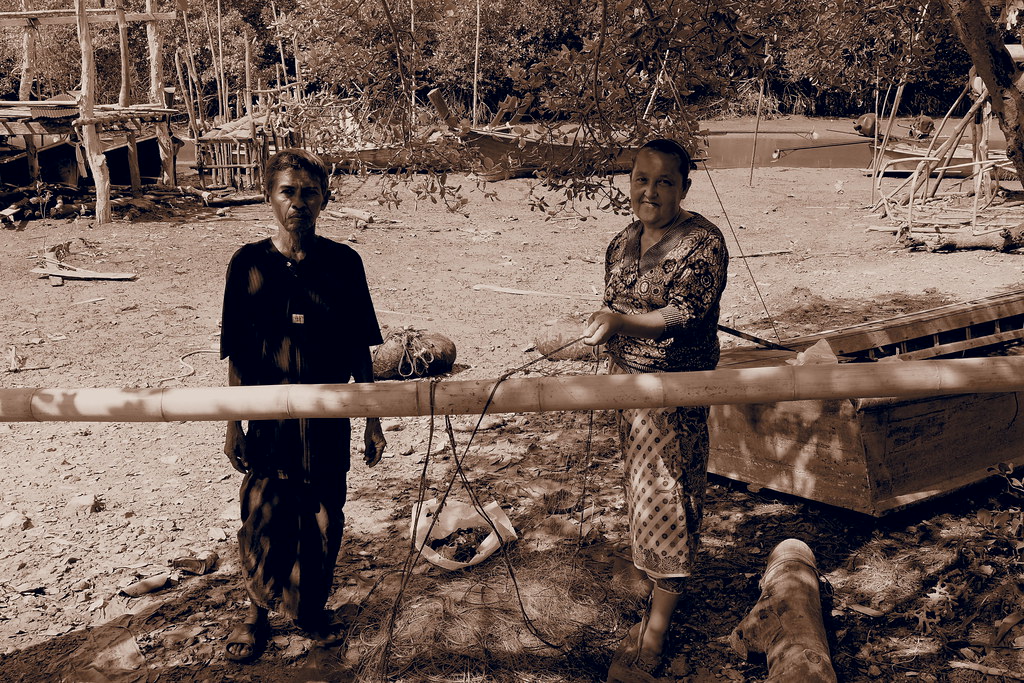
Local fishermen in Khlong Rua Village
Palm oil mills produce a lot of waste, which could be an excellent fuel to generate energy. Currently the local capacity to generate electricity from waste from palm oil production, known as palm oil mill effluent, is about 30 MG, said Athiras, adding that this could increase to 100-300 MG within about three years if mill operators received support from the state.
He said that in mid-2015, EGAT stopped purchasing electricity from palm oil mills. This forced many operators to stop producing power and some went bankrupt because they had invested millions of baht in power generation plants.
“The authorities think that small [biomass] power plants are not reliable. They forget that by buying energy from these plants they also get to support palm oil farmers, boosting the whole economy in the region as the provincial palm oil industry produces about 10,000 tonnes of waste every day,” said the palm oil expert. “Now that the authorities have stopped buying power from these plants, the owners have to sell the palm kernel shells to power plants in other provinces.”
He said EGAT claimed that the electricity transmitted into the central grid from palm oil mills was not stable, but the problem was due largely to old transmission lines which need to be upgraded and the unstandardised purchasing contracts between the mill operators and EGAT.
On Lanta Island off the coast of Krabi where power cuts are common, some entrepreneurs took the matter in their own hands instead of relying on the government to solve the problem.
Khwankanok Kasirawat, 47, the owner of Lanta Mart, one of the biggest grocery shops on the island, installed 48 KW of solar panels on the roof of her shop two years ago. “Power cuts often occur on the island because EGAT has not built an electricity substation here, but I don’t have to worry much about it now,” said Khwankanok. “On top of that, during the high season, when I have to turn on the fridges all day, my electricity bill would be around 120,000 baht per month. But, now it’s only about 70,000 baht since we have installed the solar panels.”
She added that she and her friends are now forming a group to promote the use of solar panels on the island as she now has experience. Asked what she thinks about the coal-fired power plant, Khwankanok said “It would be the death of the tourism industry of the island and of Krabi itself. I don’t know what they are thinking.”

The beach close to the area proposed for the construction of the power plant and the pier
Provincial vs. Regional development
The authorities say that as the region is still reliant on electricity transmitted from the central region, the lack of power security restricted economic development.
For Amarit Siripongyutagut, former president of the Krabi Tourism Association, it is worth questioning what kind of development people in Krabi and other nearby provinces really want. “According to the blueprint which tourism industry operators and the former provincial administration planned together, Krabi with its thriving tourism industry could be developed in ways where the local environment should not be compromised. The province could become a model of how business operators are united in an effort to protect the environment.”
He added that the military government said some civil society groups are turning local people against the government, but most people are of course already against the plan because it is against their interests since most of them are working in the tourism industry.
Agreeing with Amarit, Kittichai Eangchuan, Deputy CEO of the Krabi Provincial Administrative Organization, told Prachatai “I think the government forgot that investing in green energy is also a path to development and Krabi already has the resources for that.”
The global energy trend now is to decentralise power generation while reducing the reliance on fossil fuel, but the government seems to be doing the opposite. “I should not be saying this much, but Krabi is my home and it is famous for its crystal clear sea and beaches. Who would want a coal-fired power plant with its large thermal turbines and large ships transporting coal around here.”
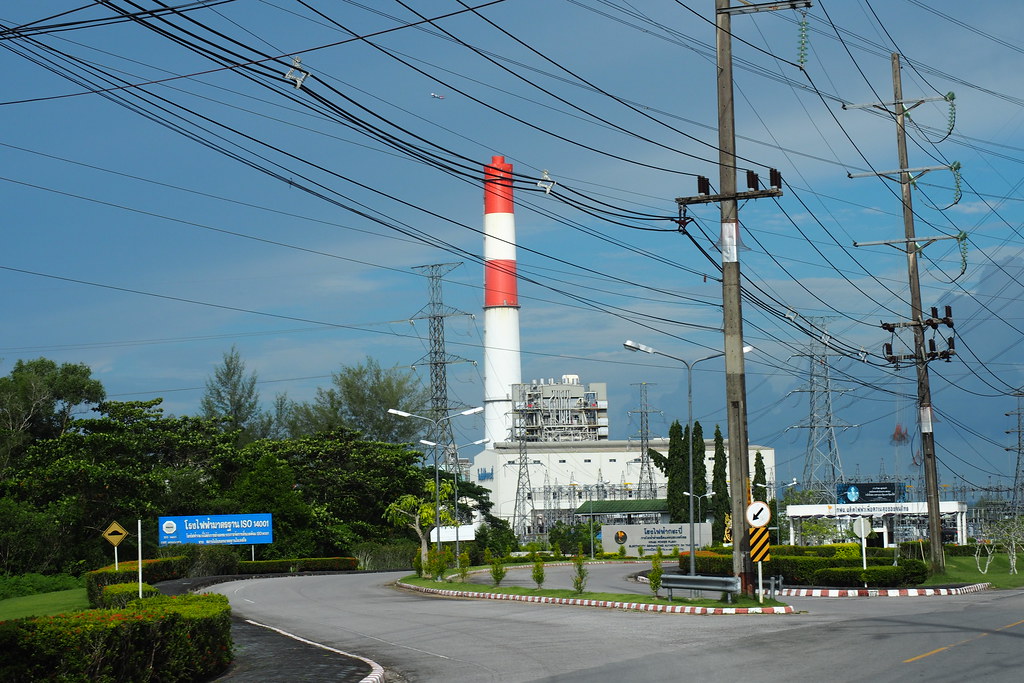
The old fuel gas power plant Klong Kanan Subdistrict of Krabi

